Eight Christmas gift ideas for children with visual and/or hearing impairments
At Christmas time, we can all fall into the trap of thinking we need to buy the latest, best toys for our kids. But it’s really about getting the child something they will actually find meaningful, rather than lots of presents they may not like.
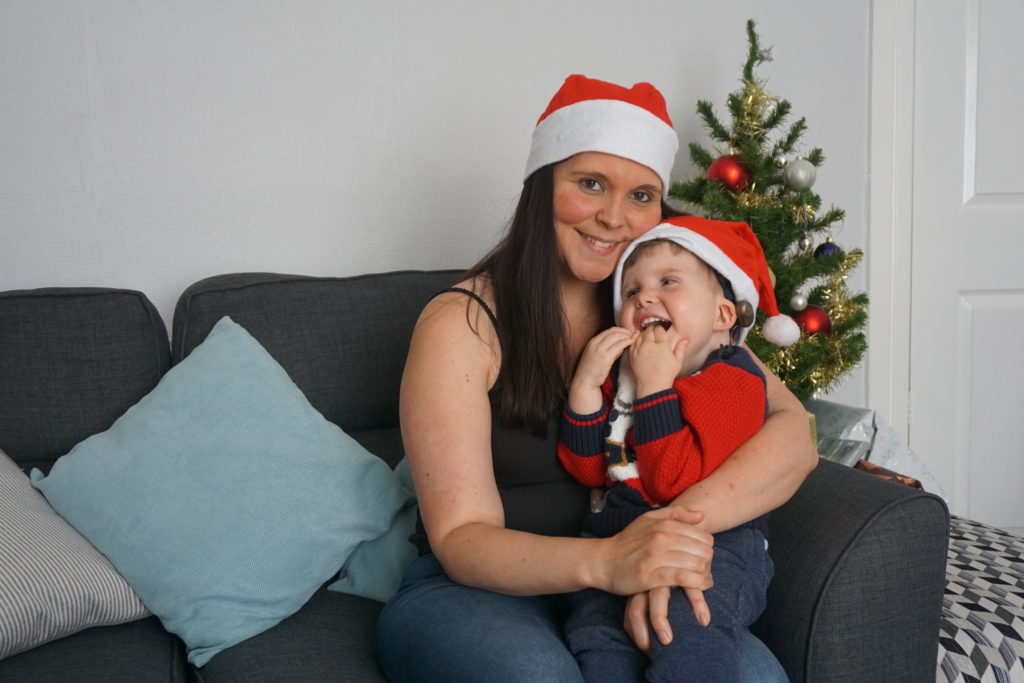
When it comes to finding presents for children with sensory impairments – like deafness, blindness or deafblindness – it can sometimes be a struggle. A lot of mainstream toys aren’t suitable, but more specialist toys can be quite expensive.
Toys for blind and deaf children
Finding something that a young person with sensory impairments can engage with is more important than quantity of presents. Perhaps you could get a group of family members to all chip in together to raise the money for a more specialist toy.
Or you could put together something homemade, like a sensory bag. This is a bag full of different textures, lights and sounds for a young person to explore. It doesn’t cost much to put a brush, some fabrics, a torch and other things into a bag – but it could keep a young person entertained for a while. Lots of young people also like really cheap fidget toys or stim toys you can find in many supermarkets.
In my years at Sense supporting young children who are deafblind, I’ve picked up a few ideas about what children enjoy. These are my top recommendations for Christmas presents for children with sensory impairments, whether your budget is £2.99 or £100.
Presents £10 and under
Light-up toys
From £2.99
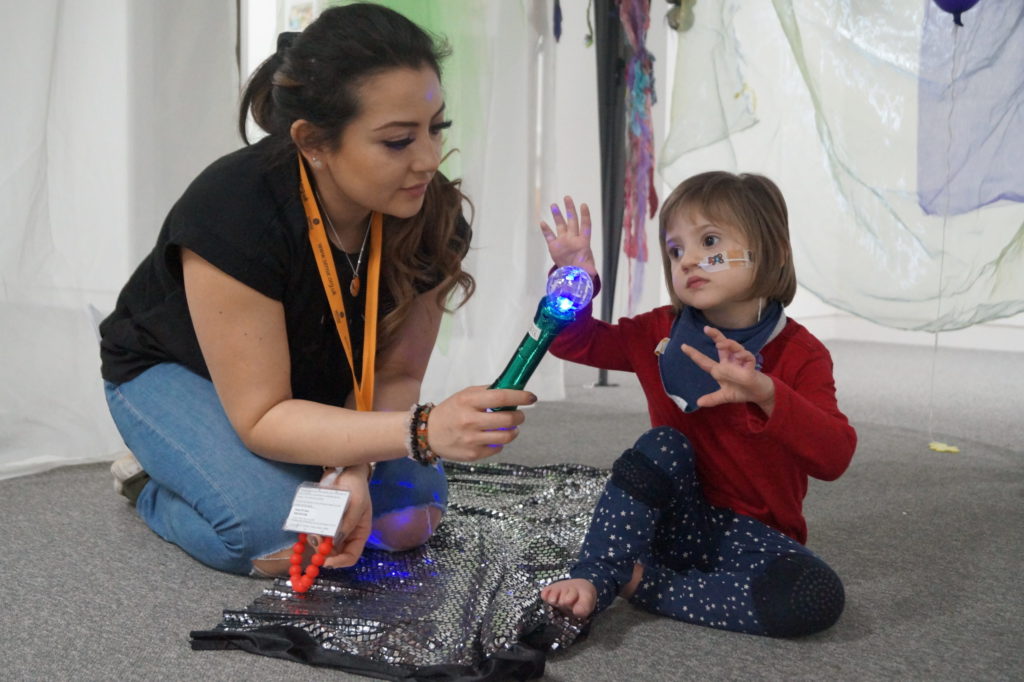
Generally speaking, lots of children like light toys. If the child you’re buying for has a visual impairment but some light perception, light-up toys can be a very good thing for them.
For example, some children might have a cerebral visual impairment (CVI), which means that their eyes are normal but there’s a problem with how they process sight in their brain. Children with CVI usually have some vision, and often have a preference for certain colours. So you might choose their preferred colour of lights, to help motivate them to look and use their vision.
When we’re buying presents and toys for our young people at Sense Family Days, we often use a company called The Glow Company. They make lots of different kinds of lighting, glow sticks and light-up toys.
Signing books
From £4.99
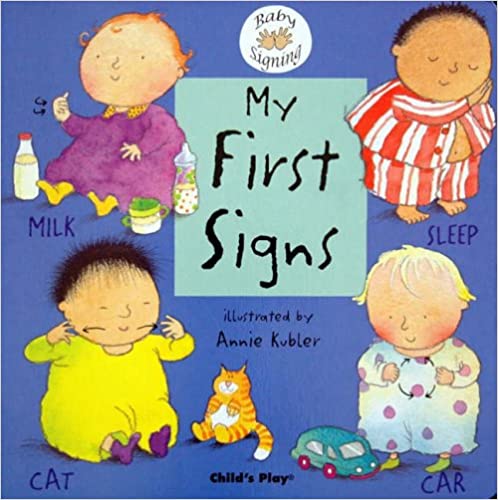
British Sign Language (BSL) books, like these from BSL Resources, are great for young children who sign. We also love My First Signs.
Hearing children grow up immersed in language – they hear words everywhere, and see lots of books all the time. Deaf and deafblind children deserve to be immersed in language too. Signing books give them the independence to read a book.
You can also get Makaton books for children who use that. These books take some of the fear away for families around signing. By telling a story, you can engage siblings and the whole family.
Tactile and braille books
From £5.97
Children with little or no vision who don’t use signing might prefer to read tactile books. These are story books with lots of different textures for them to feel. The RNIB sells a great selection of tactile and braille books.
You could also sign your young person up for a membership to Living Paintings or ClearVision, which would allow them to rent audiobooks, braille or tactile books throughout the year.
National Trust membership
£10 for a year

Gifts don’t have to be toys. I know a lot of families that come to Sense have bought National Trust memberships, because this gives them lots of spaces they can visit. It might not look great from the child’s perspective as a present, but through the year, they’ll get so much joy out of it.
For a young person under 17, it’s only £10 to join the National Trust for a year. And for young people with complex needs, two carers can go with them for free. So it’s really accessible. The places themselves are not too busy, and really well controlled – so it’s great for young people who like to go out, but get stressed out in crowds. I spoke to a mum recently who said it was the best £10 she’d spent!
Bigger presents over £10
Dr Zigs’ giant bubble kits
From £17.99
These bubble kits make massive bubbles that can go all the way around a person, including people in wheelchairs. They’re really popular.
They also hold their shape – they don’t pop as easily as normal bubbles. That means that the young person can really feel and explore them. Normally, bubbles are there and gone very quickly. That’s hard for a child with a visual impairment to understand. But these bubbles stick around a bit longer.
Musical instruments
£35 for a set of 10
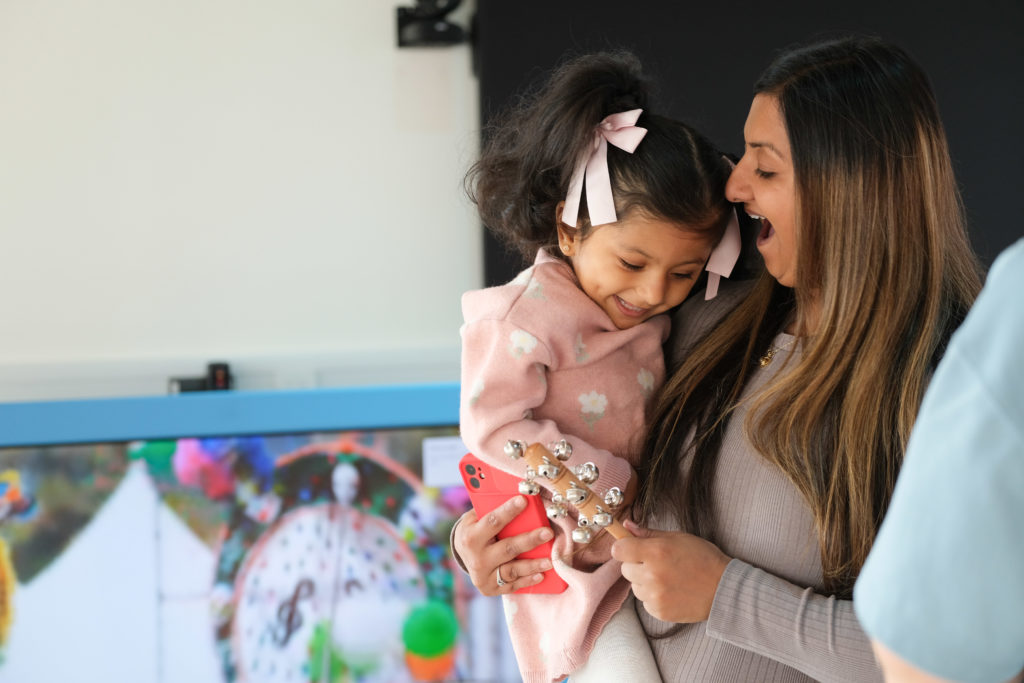
You can never go wrong with musical instrument toys. All children love making noise and vibrations, including those with sensory impairments.
Very few children with a hearing impairment have total hearing loss, so they may be able to pick up some sounds. And all sound has resonance, so they can feel it. So musical toys are still lots of fun, and help them to understand and explore where their body is in space.
Remember, wooden toys have better resonance than plastic ones! We love this set of wooden musical instruments for children aged one and up.
Tonieboxes
From £79.95 for the Toniebox, from £15 for Tonies
A Toniebox is a square speaker, and it comes with different figures (called Tonies) you can magnetically attach to the top. The Tonies read stories, or sing songs. For example, you could have a Gruffalo Tonie, and when you attach it to the top of the box, you hear the sound of The Gruffalo story being read.
Lots of young children really like these Tonieboxes. They’re quite soft and squidgy, so you get some tactile feedback from them. Lots of young people really enjoy the magnetic push-pull feeling of attaching the Tonies to the box, too. And it gives them some independence, choosing which story or song they want to hear today.
What’s nice is that the Tonies are quite cheap, they’re usually £10 or £15. So perhaps the parents could get a Toniebox for a child as their main present, and then other family members could buy different Tonies to go on top.
Chimeabout
Around £90
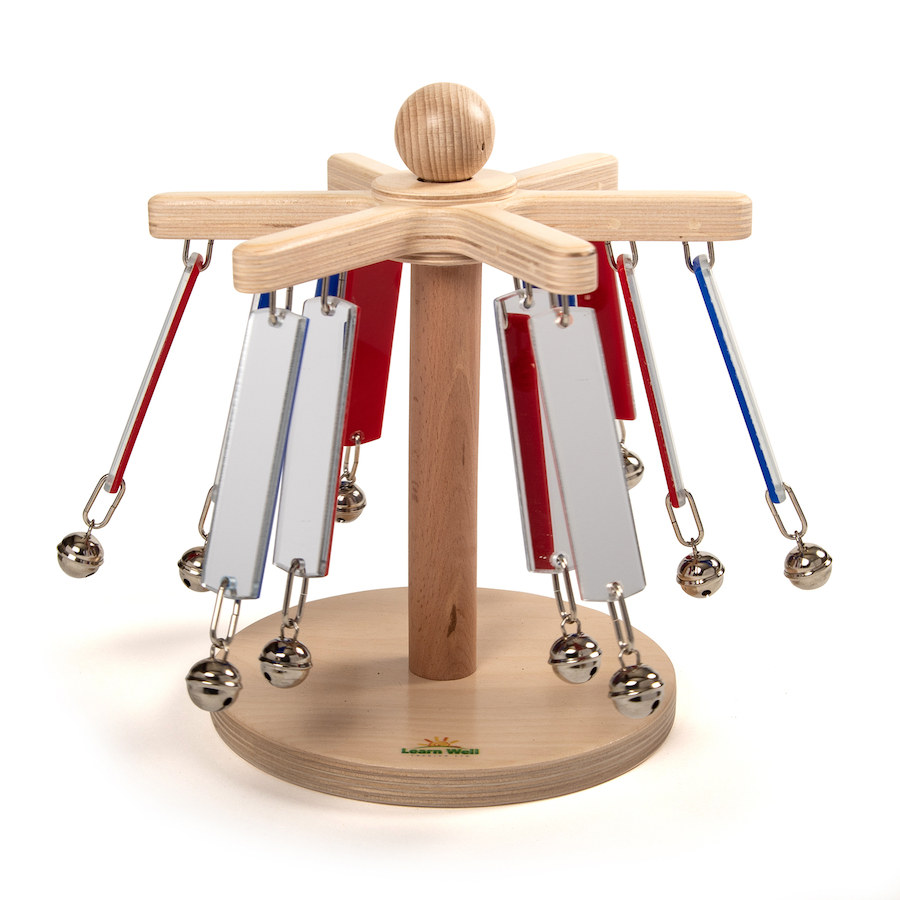
A chimeabout is a fantastic toy for children with all kinds of sensory impairments or different needs. It has bells on, for auditory input, and mirrors to catch the light. You can spin it like a carousel, and the reflections create a really lovely effect.
I know a young person who has no useful hearing, but loves playing with this toy – he spins it, then holds it to his face to feel the vibrations and resonance.
I love wooden toys. It’s a warmer, natural texture, and more durable than plastic. Children like to explore toys in different ways – especially children with visual impairments, they might bash things around a lot. Plastic toys might crack or shatter, but wood will stand up to more hard knocks!
Help more kids feel the joy of Christmas
Thanks to donations from people like you, we’re able to help families feel the magic of Christmas through our Sense Christmas Family Days where they can have an amazing time and learn important skills for life.
Now, will you give so we can help another child feel included this Christmas?

